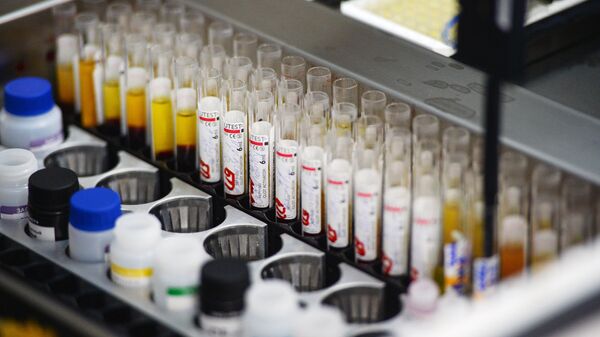The problem is likely to continue growing in its seriousness and might attain the magnitude of the major epidemics of the previous centuries, with the lethality of pathogenic bacteria being equal to that of HIV, flu and tuberculosis combined.
READ MORE: Professor Explains Why Consumers Shouldn't Be Worried About 'Mad-Cow Disease'
Slower and less research, as well as the increasing number of infectious, deceases contracted in hospitals are two other alarming facts, which render the problem much more complex and dangerous.
Antibiotics Losing Effectiveness
According to experts, medical science is engaged in an ongoing struggle with bacteria that are mutating and finding mechanisms to defend against the antibiotics effect.
"The battle of epidemiology against pathogenic bacteria never stops. The microorganisms mutate, modify their mechanisms of penetration and end up no longer being sensitive to any antibiotic," Jean-Francois Collet, professor at the Belgian Ide Duve Institute of the University of Louvain specializing in resistant strains of bacteria, told Sputnik.
This tendency caused no doubts for his colleague from the Belgian University of Liege, Professor Frederic Kerff.
"Some strains are today resistant to everything. Some bacteria populations develop new 'strategies' when they are highly exposed to an antibiotic and become resistant. They are passing on the new mechanisms resistant to each other," Kerff stated.
Stijn Deborggraeve, a diagnostic expert in bacteriology at the Institute of Tropical Medicine Antwerp, predicted in his comments to Sputnik that the antibiotic resistance would very likely become the number one health issue for the world in the future.
"Since bacteria develop new mechanisms to defend themselves against antibiotics, we have to understand the mechanisms first and how it is spread. This is challenging, especially since bacteria can become rapidly resistant to antibiotics through exchange of genetic material between bacteria," Deborggraeve stated.
"Many reports state that in 30 years, around 2050, bacteria resistant to any antibiotic will cause more deaths in the European population than cancer. We will be brought back to a situation close to the one we suffered in 1900. Most deaths will be caused by infectious diseases! We have had a lull since the discovery of penicillin in the 1930s and the development of antibiotics, but this window of health is closing," Collet summarized.
Hospitals: Turning Tables
The problem of pathogenic bacteria is compounded by the fact that an increasing number of people, in particular children and the elderly, become infected with contagious diseases at hospitals.
"We now have more 'bad luck' to contract one of these infectious diseases in the hospital, nosocomial infections [hospital-acquired infection], than ever before. When you have to undergo an operation, the surgeon opens a 'breach' in your body, where pathogens can get in," Collet explained.
READ MORE: ‘Polio-like' Disease Infects Dozens Across US, Doctors Stumped on How it Spreads
Collet warned that in the future the bacteria might expand their range, "getting out" of hospitals and spreading in the population.
"There is a lot to be afraid of, if we do not discover new antibiotics that are effective against these micro-organisms. By 2050, you will have a one in three chances, in the current state of things, of dying from a hip prosthesis placement operation, because the medicine will be unable to protect you from infections," Kerff warned in turn.
Research Difficulties
When it comes to the search for a solution to the problem, the experts raised concerns over the fact that the pace of medical research was very slow and lacked the needed funding.
"The problems is that the research and development of new antibiotics is very costly and slow. Many pharmaceutical companies have stopped research in that field to concentrate on other more profitable medical research fields," Deborggraeve stated.
Collet added that there was also an economic problem regarding the medical studies, with modern researchers today overcoming the effects of the disinvestment by the pharmaceutical industry in the years of 1980-2000s.
He, at the same time, expressed confidence that there was hope for the coming decade, with both the government and the private sector sounding the alarm and accelerating efforts to tackle the matter.
The views and opinions expressed by the speakers do not necessarily reflect those of Sputnik.





